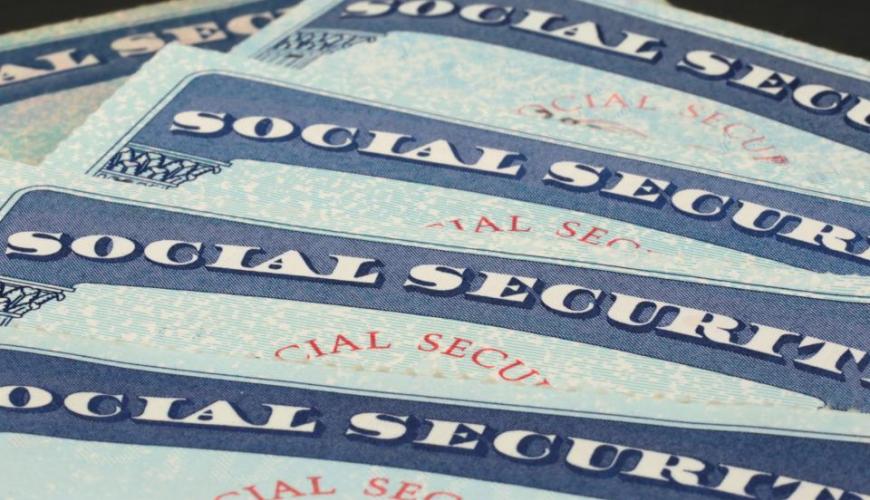What happens to Social Security payments during a government shutdown?

Contents
A government shutdown could leave many of the nation’s 2 million federal workers temporarily without a paycheck. But if you’re among the 68 million Americans who receive Social Security benefits, your monthly checks will continue — even if Congress doesn’t reach a deal to avert a potential federal government shutdown by its March 22 deadline.
How a shutdown affects Social Security and Medicare
You’ll still receive your Social Security check if the government shuts down. You can still apply for benefits or make an appointment with Social Security if the government shuts down. If you rely on Medicare for health insurance, you can still go to the doctor if the government shuts down.
But that doesn’t mean you won’t feel the effects of a government shutdown if you receive these benefits. We’ll cover a few ways beneficiaries could feel the sting. But first, let’s discuss why Social Security and Medicare benefits will be largely unaffected if lawmakers in Washington fail to reach a deal.
The government services impacted by a shutdown are those that rely on discretionary spending. The U.S. House of Representatives and U.S. Senate have to work out a budget each year to fund these federal agencies and programs. These programs account for about a third of the annual budget.
But Social Security is a mandatory spending program, as is Medicare, the federal health program for people 65 and older and those with long-term disabilities. These programs aren’t subject to annual appropriations. Their funding is mandated by law.
Both Social Security and Medicare have a dedicated revenue stream: the payroll taxes that eat up 7.65% of most workers’ paychecks that employers must match. The money you pay into both of these entitlement programs is kept in trust funds that are separate from the federal government’s general fund.
As a result, Social Security checks and Medicare benefits can continue even in the absence of a congressional spending deal.
What Social Security beneficiaries can expect during a shutdown
If you receive Social Security benefits — including Social Security Disability Insurance (SSDI) and Supplemental Security Income (SSI) — your checks will go out as usual if the federal government shuts down, per the Social Security Administration’s contingency plan for fiscal year 2024.
The Social Security Administration (SSA) says you’d still be able to conduct many of the same activities during a shutdown that you normally do. For example, you’ll be able to:
Apply for benefits
Make appointments at Social Security offices
Have a hearing to determine SSDI eligibility or request an appeal if your disability claim is denied
Change your address or direct deposit information
Request original or replacement Social Security cards
Request reinstatement of benefits
Report that you didn’t receive a payment
Still, an estimated 15% of the Social Security Administration’s workforce can expect to be furloughed if the government shuts down. It’s inevitable that this will have some effect on beneficiaries. Here are some ways the shutdown could affect beneficiaries.
You won’t be able to receive benefit verification, which is sometimes necessary if you’re applying for a mortgage, loan, or government benefits.
You won’t be able to correct your benefit or earnings record.
Social Security, which handles Medicare enrollment, won’t be able to issue replacement Medicare cards.
It’s possible that you’ll encounter longer wait times if you need to call Social Security customer service. Many of the services that would be put on pause don’t directly affect the general public, though. For example, Social Security’s contingency plan lists IT upgrades, public relations, and processing requests for information among the services it would discontinue temporarily.
How SSDI benefits are impacted
Like Social Security retirement benefits, SSDI checks shouldn’t be interrupted. However, if you’re applying for disability benefits or awaiting a decision on your application, it’s possible that a shutdown could delay the process.
When you apply for disability, it’s sent to state Disability Determination Services agencies that receive federal funding for review. While the SSA says in its contingency plan that it would “encourage” these agencies to continue offering limited services in a shutdown “with the understanding we will reimburse DDSs for their work once we receive funding,” it can’t require state offices to continue operations.
Considering that it currently takes about seven months for an initial disability claim to be processed, any interruption to a state DDS agency could add to an already extensive backlog.
How Medicare benefits are affected
If you receive Medicare, you’ll still be able to go to the doctor, a hospital, receive medical treatment, and fill prescriptions — even though an estimated 51% of staffers at the Centers for Medicare & Medicaid Services will likely be furloughed. You’ll also be able to enroll in Medicare through the Social Security Administration, as usual.
Don’t be surprised if you experience longer wait times if you need to contact Medicare, though. A shutdown could also add to the time healthcare providers have to wait on Medicare reimbursement.
What happened to Social Security during past shutdowns?
During the 20 government shutdowns that have occurred since 1976, Social Security checks have gone out on schedule. Though Medicare applications experienced major disruptions during the 1995-96 shutdown, benefits and applications were largely unaffected during the 2013 and 2019 shutdowns.
The bottom line: You don’t need to worry that your Social Security check or Medicare benefits will be disrupted by congressional infighting. These benefits are enshrined in law.
